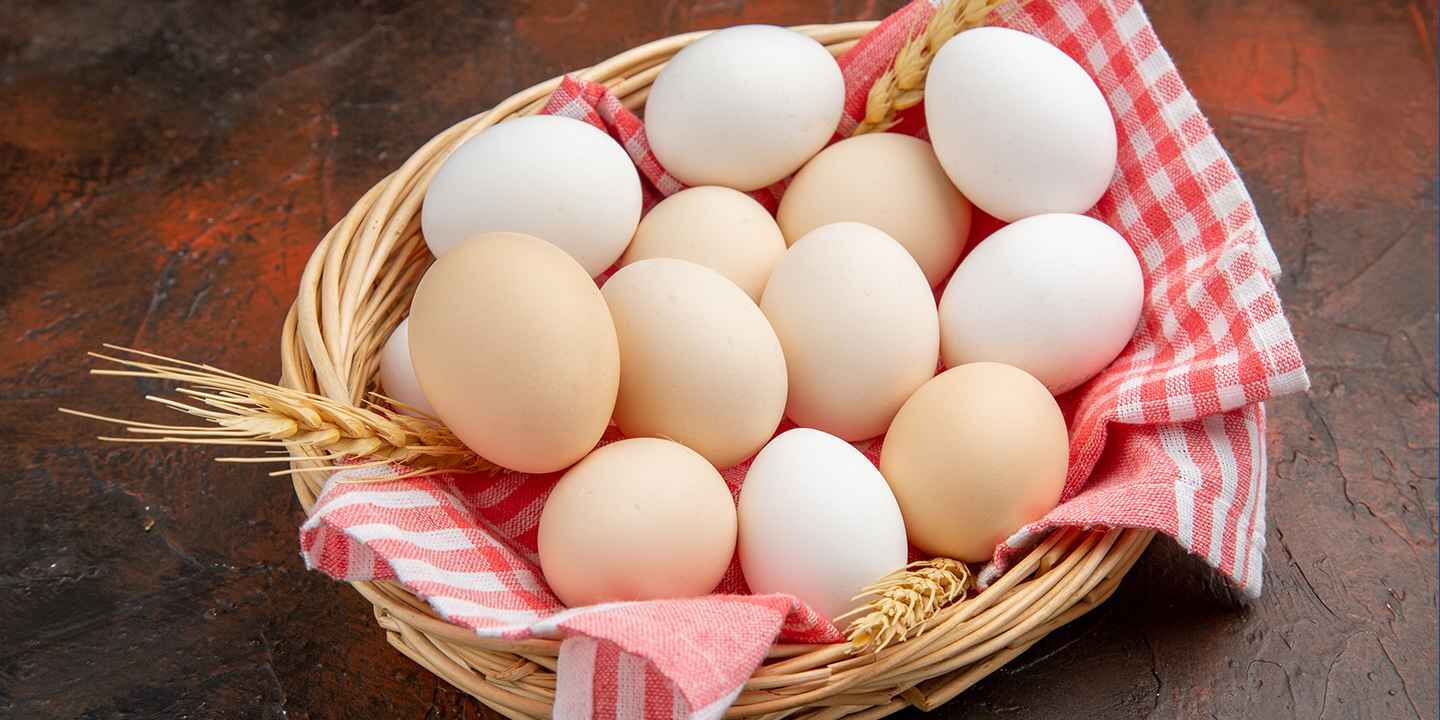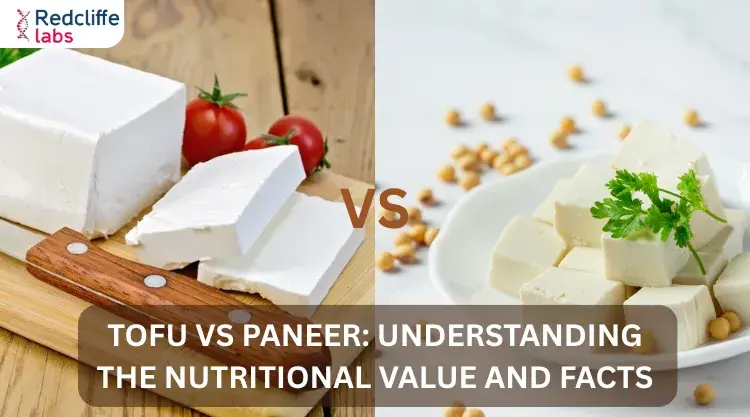Protein Content in Egg: how much protein in 1 egg, find the complete nutrition facts

Medically Reviewed By
Dr. Ragiinii Sharma
Written By Dr Divya Rohra
on Apr 12, 2022
Last Edit Made By Dr Divya Rohra
on Jan 10, 2025

In this Article
How much protein is present in 1 egg?
On average, one egg contains 6-7 gms of protein. The exact amount of protein present in the egg depends on the size of the egg. The table below lists the grams of protein present in an egg according to its size. The amount of protein present in an egg depends on the size of the egg. So, if you are wondering how much protein is in 1 egg then an average-sized egg contains about 6-7 grams of protein. The white and yolk of an egg are each a good source of protein, but the yolk is the largest portion of the egg. The white is made up of about 88% water and contains slightly less protein than the yolk. Eggs are an excellent source of protein. They contain vitamins and minerals and are a great addition to a well-balanced diet. They are a convenient way to get the protein you need without a lot of extra calories. The amount of protein in eggs varies based on a number of factors, including the size of the egg and the nutritional makeup of the egg. The American Egg Board promotes eggs as a healthy food, stating that they contain B-complex vitamins, vitamin D, and minerals. The amount of protein present in an average large protein in 1 egg is 6.5 grams.| S.No. | Size of egg | Weight of egg (in grams) | Grams of protein present |
| 1. | Small | 38 | 4.9 |
| 2. | Medium | 44 | 5.7 |
| 3. | Large | 50 | 6.5 |
| 4. | Extra-large | 56 | 7.3 |
| 5. | Jumbo | 63 | 8.2 |
Nutritional Facts
Just like the protein content, other nutritional parameters of the egg are also dependent on the size of the egg, that is, the egg content varies with its size. The nutritional parameters as per the standard sizes of the eggs are tabulated below:| S.No. | Nutritional parameter | Size of the egg | ||||
| 48 grams | 58 grams | 68 grams | 78 grams | 100 grams | ||
| 1. | Energy (kcal) | 54 | 66 | 78 | 90 | 131 |
| 2. | Fat (in grams) | 3.7 | 4.6 | 5.4 | 6.2 | 9.0 |
| 3. | Saturated fat (in grams) | 1.0 | 1.3 | 1.5 | 1.7 | 2.5 |
| 4. | Monounsaturated fat (in grams) | 1.4 | 1.7 | 2.0 | 2.4 | 3.4 |
| 5. | Polyunsaturated fat (in grams) | 0.6 | 0.7 | 0.9 | 1.0 | 1.4 |
| 6. | Carbohydrates (in grams) | Negligible | Negligible | Negligible | Negligible | Negligible |
| 7. | Sugar (in grams) | Negligible | Negligible | Negligible | Negligible | Negligible |
| 8. | Protein (in grams) | 5.2 | 6.4 | 7.5 | 8.7 | 12.6 |
| 9. | Salt (in grams) | 0.16 | 0.20 | 0.23 | 0.27 | 0.39 |
Nutritional facts about hard-boiled eggs
Hard-boiled eggs are a common form in which eggs are consumed in India. The nutritional parameters of eggs vary depending upon the form in which they are consumed. The average value of different nutritional parameters in a 50-gram hard-boiled egg is tabulated below.| S.No. | Nutritional parameter | Quantity in grams |
| 1. | Calories | 77 g |
| 2. | Carbohydrates | 0.6 g |
| 3. | Total fat | 5.3 g |
| 4. | Saturated fat | 1.6 g |
| 5. | Monounsaturated fat | 2.0 g |
| 6. | Cholesterol | 212 mg |
| 7. | Protein | 6.3 g |
| 8. | Vitamin A | 6% of the recommended dietary allowance (RDA) |
| 9. | Vitamin B2 (Riboflavin) | 15% of RDA |
| 10. | Vitamin B12 (Cobalamin) | 9% of RDA |
| 11. | Vitamin B5 (Pantothenic acid) | 7% of RDA |
| 12. | Phosphorus | 86 mg (9% of RDA) |
| 13. | Selenium | 15.4 mcg (22% of RDA) |
Takeaway
Eggs are a storehouse of protein. It is one of the easily available and cheap sources of protein that people of all classes can consume. The average protein content in an egg is around 6-7 grams. Now that you know the protein content in an egg according to its weight, you can better analyse the number of eggs you can consume as per your daily protein requirement.Frequently Asked Questions (FAQs)
-
-
-
-
-
Which part of the egg contains maximum protein?
It is often thought that the white part of the egg contains protein entirely. But this is not true. Both the egg whites and yolk contain an approximately equal amount of protein. Therefore, you should consume both egg yolk end whites and not only egg white. -
How many eggs can I consume in a day?
On average, one whole egg a day is sufficient for anyone. However, if you are on a high protein diet, you can consume up to 3 eggs a day. -
What food has protein content equivalent to an egg?
There are some other alternative food items also available for eggs. These alternative options include tofu, cheddar cheese, almonds, black beans, greek yogurt, peanut butter, and pumpkin seeds. -
Is eating boiled eggs healthy?
Yes, hard-boiled eggs are an excellent source of lean protein and inevitably healthy for your diet.
-
-
-
-
Leave a comment
2 Comments
Sirajudeen Tk
Oct 16, 2023 at 4:32 AM.
എനിക്കിതൊരു പുതിയ അറിവു തന്നു. മുട്ട കഴിച്ചാൽ കൊളസ്ട്രോൾ കൂടും എന്നതിനാൽ മുട്ട വല്ലപ്പോഴുമേ കഴിക്കൂ.
Myhealth Team
Oct 18, 2023 at 9:29 AM.
മുട്ട കഴിക്കൽ കൊളസ്ട്രോൾ-കുറക്കുന്നതിനുള്ള കാര്യങ്ങളിൽ ഒന്നാണുവന്നറിയുക. കൊളസ്ട്രോൾ നിയന്ത്രിത ആഹാരം, സാന്ദ്രിത മുട്ട, ശരിക്കുള്ള പറന്ന വയസ്സ് എന്നീ സാന്ദ്രിയങ്ങളിൽ അപേക്ഷികമായ പങ്ക് ഉള്ളു.
Michael D Sadler
Jun 11, 2023 at 11:27 AM.
I eat two eggs a day for breakfast is that bad for my health and am I eating to many that could put my cholesterol and what is the correct number of eggs To eat in one day
Myhealth Team
Jun 12, 2023 at 5:02 AM.
Hi Michael, Eating two eggs a day for breakfast is generally considered healthy for most individuals. Eggs are a good source of protein and various nutrients. However, if you have specific health conditions or concerns about cholesterol, it's best to consult with a healthcare professional who can provide personalized dietary advice. The recommended number of eggs per day can vary depending on individual factors, so it's important to consider your overall diet and health goals. Thankyou



